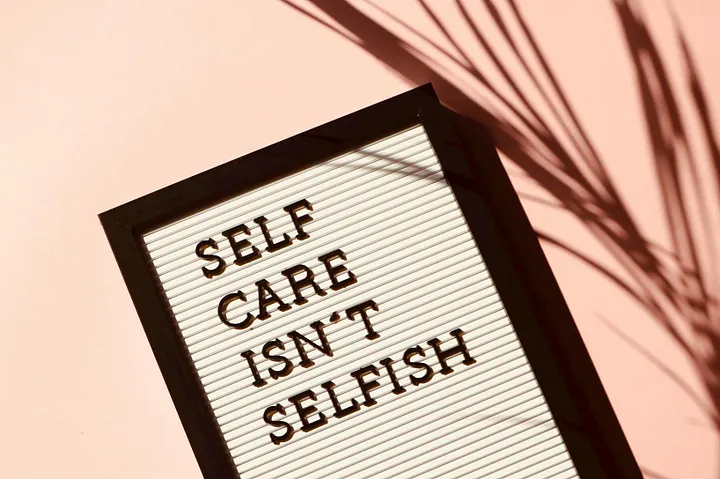Navigating the complexities of mental health can be a daunting journey, especially in the fast-paced world of 2024. As you strive to thrive in a rapidly evolving society, prioritizing your mental well-being becomes increasingly crucial. Fortunately, there are actionable steps you can take to cultivate a healthier mindset and get your mental health back on track. These steps range from self-care to setting boundaries, but they all go hand-in-hand in protecting your mental health. Remember, your mental health is just as important as your physical health, and the condition of one can impact the other.
1. Prioritize Self-Care
Self-care is more than just a trendy buzzword; it’s a fundamental aspect of maintaining good mental health. In the hustle and bustle of daily life, it’s easy to neglect your own needs. However, carving out time for activities that nourish your mind, body, and soul is essential. Whether it’s taking a leisurely walk in nature, indulging in a hobby, or practicing mindfulness meditation, prioritize self-care as a non-negotiable part of your routine. Keep in mind that self-care isn’t selfish; it’s an investment in your overall well-being that allows you to show up as your best self in all areas of life.
2. Cultivate Healthy Habits
The mind and body are intricately connected, and physical health can significantly impact mental well-being. In 2024, focus on cultivating healthy habits such as regular exercise, nutritious eating, and adequate sleep. These lifestyle choices not only boost mood and energy levels but also enhance resilience in the face of stressors. Small, sustainable changes can make a significant difference in your overall mental health. Furthermore, physical activity releases endorphins, the body’s natural mood lifters, contributing to a more positive outlook on life.
3. Foster Supportive Relationships
Human connection plays a vital role in your mental health, serving as a source of comfort, validation, and encouragement. Take the time to nurture relationships with friends, family members, or support groups. Surround yourself with people who uplift and empower you, and don’t hesitate to reach out for support when needed. Social support can provide a valuable buffer against life’s challenges. Of course, forming meaningful connections involves reciprocity; you must be willing to offer support and empathy to others as well, strengthening the bonds of mutual understanding and solidarity.
4. Set Boundaries
In a digitally-driven world where boundaries often blur, setting clear boundaries is essential for safeguarding your mental well-being. Whether it’s establishing limits on screen time, saying no to excessive commitments, or asserting boundaries in relationships, prioritize your needs and limitations. Boundaries protect your time, energy, and emotional resources, allowing you to maintain a healthy balance in life. Setting boundaries is an act of self-respect that communicates your needs and values to others, fostering healthier and more fulfilling relationships. Additionally, practicing boundary-setting skills can empower you to advocate for yourself and navigate life’s challenges with greater ease and confidence.
5. Practice Stress Management Techniques
Stress is an inevitable part of life, but how you respond to it can significantly impact your mental health. In 2024, explore various stress management techniques such as deep breathing exercises, progressive muscle relaxation, or journaling. Find what works best for you and incorporate these practices into your daily routine to promote relaxation and resilience in the face of stressors. Keep in mind that managing stress is not about eliminating it entirely but rather developing coping strategies to navigate it effectively. Prioritizing self-care during times of stress can help replenish your energy reserves and enhance your ability to cope with life’s challenges.
6. Engage in Meaningful Activities
Engaging in activities that bring joy, fulfillment, and a sense of purpose can have a profound positive impact on mental health. Whether it’s volunteering for a cause you’re passionate about, pursuing a creative outlet, or setting meaningful goals, prioritize activities that align with your values and interests. Meaningful engagement promotes a sense of accomplishment and satisfaction, contributing to overall well-being. Remember, finding purpose doesn’t always require grand gestures; even small acts of kindness or moments of connection can infuse meaning into your daily life and enhance your sense of fulfillment. Moreover, exploring new hobbies or interests can stimulate creativity and curiosity, adding richness and depth to your experiences.
7. Seek Professional Support When Needed
There’s no shame in seeking professional support when struggling with mental health challenges. Today, access to counseling and coaching services is more accessible and destigmatized than ever before. If you’re experiencing persistent symptoms of anxiety, depression, or other mental health issues, don’t hesitate to reach out to a qualified therapist or coach for guidance and support. Seeking help is a sign of strength, not weakness; it shows that you’re taking proactive steps to prioritize your well-being and enhance your quality of life. In addition, therapy and coaching can provide valuable tools and strategies to help you navigate challenges, build resilience, and cultivate a greater sense of self-awareness and fulfillment.
8. Practice Mindfulness and Gratitude
Amid life’s chaos, practicing mindfulness and gratitude can anchor you in the present moment and cultivate a positive outlook. Take time each day to engage in mindfulness practices such as meditation, deep breathing, or mindful walking. Additionally, cultivate a habit of gratitude by reflecting on things you’re thankful for, no matter how small. Journaling is a great way to reflect on your day, thoughts, and feelings. These practices promote emotional resilience and perspective-taking.
9. Challenge Negative Thought Patterns
Your thoughts have a powerful influence on your emotions and behaviors. In 2024, make a conscious effort to identify and challenge negative thought patterns such as catastrophizing, black-and-white thinking, or self-criticism. Replace negative self-talk with more balanced and compassionate perspectives. Cognitive-behavioral techniques can be particularly helpful in reframing unhelpful thoughts. Practicing self-awareness is key to recognizing when negative thought patterns arise, empowering you to intervene and redirect your thinking toward more constructive and adaptive responses.
10. Embrace Imperfection and Self-Compassion
Keep in mind that perfection is an unattainable standard, and it’s okay to not have it all together all the time. In 2024, cultivate self-compassion by treating yourself with kindness, understanding, and acceptance, especially during times of struggle or setback. Embrace imperfection as a natural part of the human experience, and recognize that your worth is not contingent on external achievements or validation. Practicing self-compassion involves extending the same kindness and understanding to yourself that you would to a friend facing similar challenges, encouraging greater resilience and emotional well-being. Furthermore, reframing setbacks as opportunities for growth and learning can help shift your perspective from one of self-criticism to one of self-compassion and empowerment.
Conclusion
As you navigate the complexities of 2024, prioritizing your mental health is more important than ever. By implementing these 10 tips, you can take proactive steps to get your mental health back on track and cultivate a greater sense of well-being in the year ahead. In addition, practicing self-care isn’t just about taking time for yourself; it’s about nurturing your mental, emotional, and physical well-being to better cope with life’s challenges and thrive. Moreover, seeking support from trusted friends, family members, or mental health professionals can provide valuable guidance and encouragement as you work toward enhancing your mental health. Small changes can lead to significant improvements, so be patient and persistent in your journey toward mental wellness.






